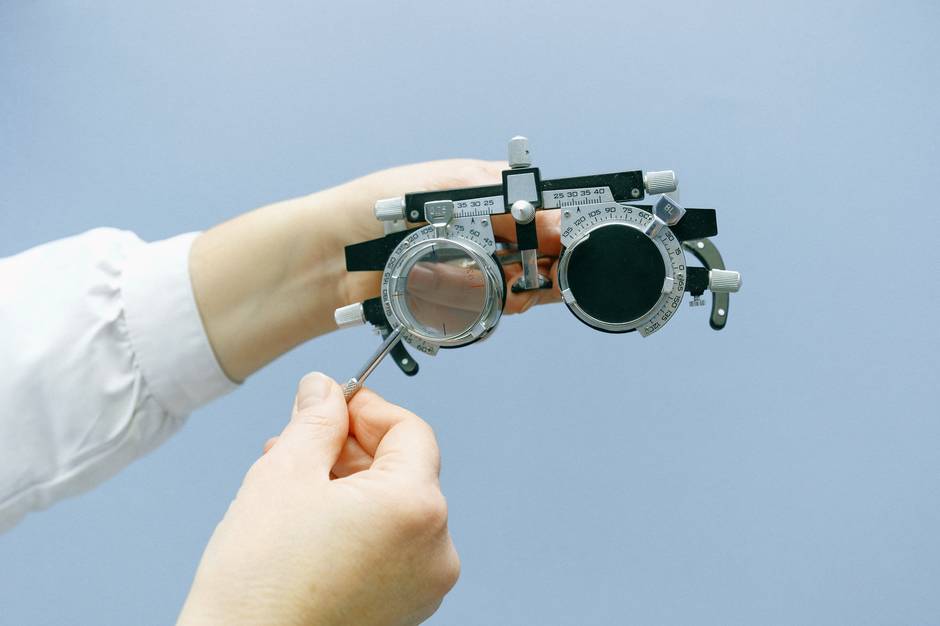Posted by: Kentucky Eye Institute in General Eye Health

About 12 million people over the age of 40 in the US have a vision impairment. Meanwhile, almost 7% of children have a diagnosed eye and vision condition. Leaving your eye problems undetected can impact your day-to-day life by taking a social and economic toll. You might notice diminished productivity, suffering, disability, or reduced quality of life.
By visiting the best eye doctor regularly, you can avoid potential problems and improve your vision.
Are you looking for the best eye doctor in Lexington, KY? Here are a few tips that can help you with your search. With these tips, you can find the best specialist before your next eye doctor appointment.
Start your search with these tips today.
1. Check Your Network
First, take a look at your vision benefits. Many carriers allow you to search for providers to help you find the best eye doctor nearby. Choosing an eye doctor who’s in your network can reduce your out-of-pocket costs.
You can also start your search by speaking with your friends and family members. Do they have an eye doctor they can recommend?
Speaking with friends and family members can give you peace of mind about your choice. You can also read reviews online by visiting each eye doctor’s Google My Business and Better Business Bureau listing. Look for an eye doctor with plenty of positive reviews.
If you can’t find a recommendation from your personal network, speak with your primary care physician. They might know an eye doctor they can refer you to. Speaking with your network can help you get a step ahead in the vetting process.
2. Know What You Need
The number of people with common eye diseases is expected to double between 2010 and 2050. As you look for an eye doctor in your area, it’s important to consider your needs.
There are three different types of eye doctors, each with a specialty. These include:
- Optometrists
- Ophthalmologists
- Opticians
Optometrists are professionals who lack a medical degree. Rather, they attained a degree from a four-year optometry school.
Most optometrists perform vision tests before prescribing corrective lenses for their patients. However, they can’t treat diseases or operate.
While optometrists don’t attend medical school, they can still screen for eye conditions. If they determine you have an eye condition, they’ll likely refer you to an ophthalmologist.
An ophthalmologist is a medical doctor who has attended medical school. They’re allowed to diagnose and treat eye diseases. They can also perform surgeries.
After diagnosing your condition, your ophthalmologist can prescribe contacts and glasses as needed.
The third type of eye specialist is an optician. These technicians don’t usually perform vision tests. Instead, they work with optometrists to provide patients with corrective lenses and contacts.
You don’t need to make an appointment to visit an optician. You can visit an eye-care center in a retail store to see an optician. They’ll fill your eyeglasses prescription after your visit with an optometrist.
Before you start searching for an eye doctor, know which type of specialist you need. If you’re concerned you have a serious eye condition, you’ll need to visit an ophthalmologist right away.
3. Check Their Credentials
Once you’ve narrowed down your options based on your specific needs, look into each doctor’s credentials.
Make sure your doctor has completed the necessary training and education. You can check Healthgrades.com to confirm their training. While online, make sure the doctor doesn’t have a history of disciplinary actions or malpractice claims.
Your research should also indicate the doctor’s certifications.
You can also learn more about the physician by visiting the:
- American Optometric Association for optometrists
- American Academy of Ophthalmology for ophthalmologists
- American Society of Retina Specialists for retina specialists
You can also check the National Eye Institute for directories, which will include credentials and licensing details. Choosing a doctor with the proper credentials will give you peace of mind about your choice.
4. Consider Their Experience
When choosing any type of doctor, you want to know they have the proper experience to provide high-quality care. A doctor who lacks hands-on experience might fail to help. Choosing a physician with experience specific to your condition or procedure will also improve the results.
Do you have a specific condition? For example, maybe you’re suffering from glaucoma. Look for a physician who specializes in treating your condition.
If you need a specific procedure like LASIK, ask how often the doctor performs the procedure.
Choosing someone with hands-on experience will give you peace of mind that they’re capable of providing the best services.
5. Ask About Availability
As you look for the best eye doctor in Lexington, make sure they’re taking on new patients. If you have limited opportunities to visit a doctor, you’ll need to make sure they match your schedule.
Many doctors are now available to take on weekend and evening appointments. If you work long days, you’ll need to find someone available in the afternoons.
6. Schedule an Appointment
Once you’ve narrowed down your options, schedule a visit. Throughout your appointment, make mental notes about your experience.
For example, how long did you stay in the waiting room? Was your appointment delayed? Were you satisfied with the care you received or did the doctor rush you out of the door?
Make sure to ask the eye doctor any questions you have during your appointment.
Did they communicate clearly? If you plan on having a long-term relationship with the doctor, make sure you’re comfortable around them. Otherwise, you might want to continue your search.
How to Find the Best Eye Doctor in Lexington: 6 Tips for a Solid Search
Keep your eyes in good health! With these tips, you can make sure the doctor you choose is qualified and experienced. You’ll have peace of mind that you’re choosing the best eye doctor around.
Ready to schedule your annual eye exam? Contact us now to schedule your next appointment.
